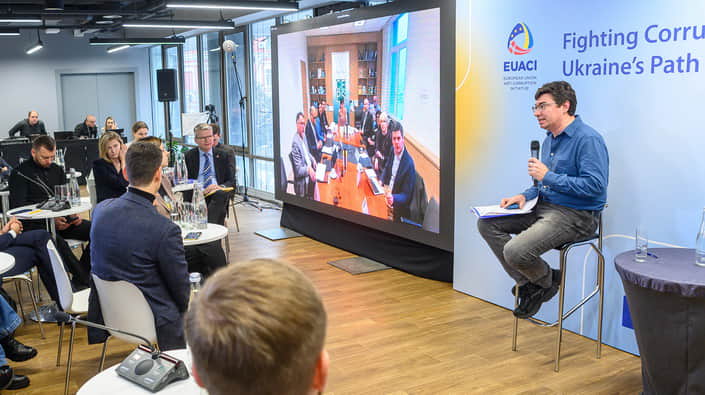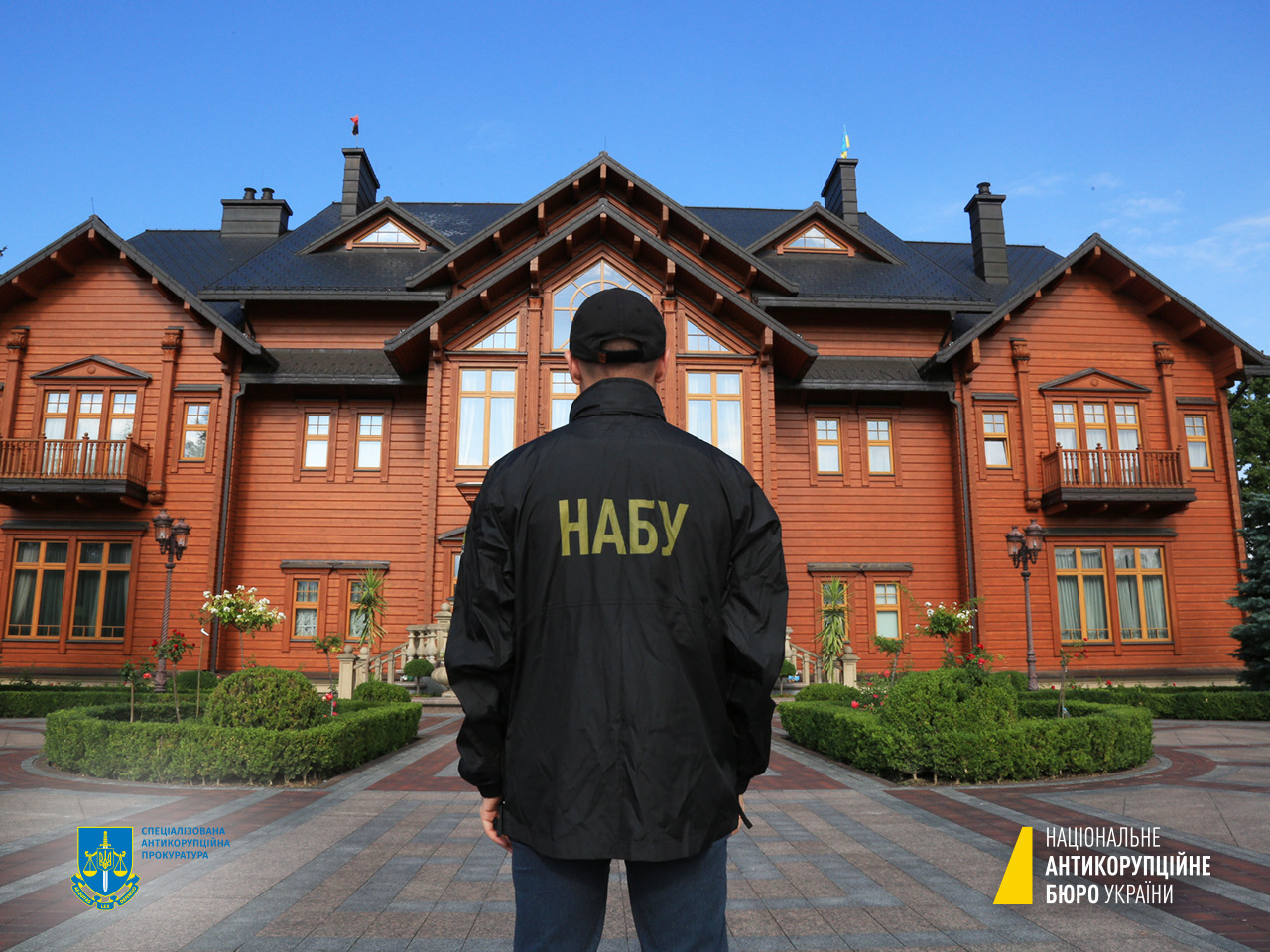
"The corruption perception index does not necessarily provide an accurate picture of the level of corruption. Perception is also shaped by the influence of media and social networks. In Ukraine, where there are free and critical media, cases of corruption occupy a prominent place in the information space compared to many other countries. Perhaps that is why the measurement of perception creates the impression that the level of corruption is higher than it actually is," explains Allan Pagh Kristensen, head of the EU Anti-Corruption Initiative.Sergiy Sydorenko, the editor of European Pravda, who moderated the video conference from Kyiv, notes that Ukraine's successes in combating corruption were widely acknowledged by the experts.
"Ukraine is already ahead of the EU in many respects," said Roland Papp, a Senior Policy Officer specializing in Illicit Financial Flows at Transparency International EU.In particular, Ukraine has satisfied all seven of the anti-corruption prerequisites established by the European Union for starting accession negotiations. This achievement is evidenced by the Verkhovna Rada passing the latest legislative requirements with a constitutional majority, followed by immediate presidential approval. The accomplishment is also recognized by Ukrainian anti-corruption activists, who are typically critical of the government's actions, Sydorenko notes.
Ukraine passes anti-corruption laws to advance EU integrationHowever, the perception of corruption among Ukrainians paints a significantly worse picture. Even those who have not encountered corruption in recent years may say in surveys that they definitely know about the 'total corruption' in Ukraine, says Sydorenko.
"We have a paradoxical situation," says Olena Halushka, a board member of Ukraine’s Anti-Corruption Action Centre. "When NABU (National Anti-Corruption Bureau of Ukraine) and SAP (Specialized Anti-Corruption Prosecutor's Office) show good results and detain someone, it is often perceived not as a positive sign – 'the anti-corruption infrastructure is working well,' but as a confirmation of worry – like, 'oh my God, look how much corruption there is in Ukraine, how can one work here?'"The lack of trust among Ukrainians in state institutions can be traced back to the traumatic experiences under the totalitarian Soviet regime. In the Soviet Union, unlike democratic systems, state institutions didn't serve the interests of the citizens; therefore, for an average Soviet citizen, survival often entailed finding ways to circumvent the restrictive state policies. As a result, after 70 years of living under the totalitarian regime, the concept of the state as a beneficial entity is not fully ingrained, particularly among the older generations of Ukrainians. The experts participating in the video conference agree that Ukraine has no other option but to continue fighting corruption until there is societal trust in the work of NABU and SAP as well as in the verdicts for corruption-related cases.

"Primarily use administrative, not criminal, levers. How many people have you seen lose their jobs due to suspicion of corruption? Dismissal is a simple step that doesn't require a lengthy criminal process," suggested Mungiu-Pippidi. "This can be more effective than finding someone who conducted corrupt procurement and then spending four, five or six years to put them behind bars."
Trending Now
“Ukraine is doing everything to strengthen the fight against corruption,” EU official saysThe criteria used to assess corruption, which focus on the perception of corruption rather than the actual state of corruption, have been criticized. Still, Transparency International does not intend to revise the methodology of their research. “The reality is that this is still the best indicator we have,” says Allan Pagh Kristensen.
"The Corruption Perceptions Index does not reflect reality – but it will be used, including by investors, because there is no alternative," agrees Zydrunas Bartkus, former head of the Lithuanian Special Investigation Service (analogous to NABU).Altering the perception of corruption in Ukraine hinges on two pivotal factors:
- fostering a deeper trust in the state among Ukrainians;
- persistently carrying out anti-corruption measures.
Why Ukraine’s wartime anti-corruption quest gives ground for cautious optimism"Sometimes it may seem to you that the course is shorter, that the finish is close, but no, it is 42 kilometers, and you have to think about the perspective... After all, in this marathon, you are now somewhere in the first 10 kilometers," says Asier Santillan Luzuriaga, diplomat of the EU Representation in Ukraine, head of the specialized department dealing with issues of the rule of law in Ukraine. The good news is that Ukraine is moving fast.
"In a marathon, it is important not only how much time you have left, but also how fast you run. In recent months, Ukraine has been running quite fast. We can see this by the growing number of open criminal cases, by the growing number of sentences. Ukraine adopts important political and legislative decision," Kristensen points out.Iryna Shyba, deputy head of EUACI believes that accession to the EU is definitely not the finish line of this "race". “After all, there is not a single country in the EU that has completely gotten rid of corruption," she adds.
Related:
- Poll: Corruption still major concern for Ukrainians despite war
- Ukraine's key anticorruption body finally gets a chief
- National Anti-Corruption Bureau, News from Ukraine
- Anti-Corruption Court, News from Ukraine
- How can Ukraine make anti-corruption institutions more
- Wartime anti-corruption quest in Ukraine
- Ukraine passes anti-corruption laws to advance EU

